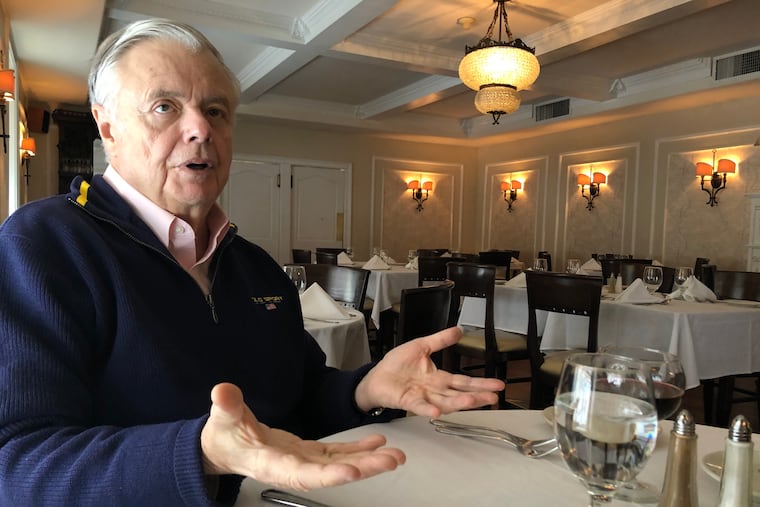Former State Sen. Vincent Fumo loses legal round in long-running tax battle over his abuse of South Philly nonprofit
Fumo already paid $1.2 million in restitution to the neighborhood nonprofit, but the IRS wants its cut.

Former Pennsylvania State Sen. Vincent Fumo has suffered a blow in a years-long and seemingly slow-motion tax fight with the IRS that lingers from his 2009 corruption conviction.
A U.S. Tax Court judge has ruled that the IRS can keep pursuing Fumo, 78, for hundreds of thousands of dollars in excise taxes related to his defrauding of a former South Philly nonprofit known as Citizens Alliance for Better Neighborhoods.
Fumo has already paid $1.2 million in restitution to the nonprofit, but the IRS remains determined to get its cut.
While Fumo was in federal prison from 2009 to 2013 for abusing Citizens Alliance and other crimes, the IRS claimed he owed $354,000 in excise taxes related to that fraud. The excise tax kicks in when someone improperly uses nonprofit money for personal benefit.
Prosecutors accused Fumo of dipping into the nonprofit’s bank account to spend heavily on himself, citing examples from money spent on political polling to $16,000 to repair a bulldozer used only on his farm near Harrisburg.
The jury also convicted Fumo, who represented a South Philly district in the Senate from 1978 to 2008, of defrauding the state Senate, tapping taxpayer money to pay for servants and political operatives. He also was found guilty of defrauding another nonprofit, the Independence Seaport Museum, by vacationing repeatedly for free on its luxury motor yacht.
Separately, the IRS claimed Fumo owed about $2.1 million in back income taxes for the value of services he obtained in his crimes and $503,000 in unpaid gift taxes on a big cash transfer to his son.
COVID-19 further stalled the slow pace of the legal fight over the IRS allegations, prompting the cancellation of a related court hearing last year.
In all, Fumo is contesting demands that he owes the federal government about $3 million. After his 2009 conviction, the former Democratic powerhouse paid $4.5 million in fines and restitution to his victims. At the time he began his prison sentence, Fumo’s net worth, once as much as $11 million, had fallen to $3 million, according to court records.
Fumo and his attorney, Mark E. Cedrone, did not respond to requests for comment Wednesday.
The May 17 ruling by Judge Albert G. Lauber doesn’t say that Fumo is definitely going to have to pay an excise tax. But the judge batted aside Fumo’s argument that his role with the nonprofit was too insignificant for him to be subjected to the excise tax for abusing it.
The judge rejected Fumo’s “hypertechnical arguments” that he wasn’t the one who founded Citizens Alliance and wasn’t an officer of the nonprofit. Fumo’s staff formed the nonprofit at his command and he clearly exercised substantial influence over its activities, the judge found.
In a secret agreement with Peco Energy, the power company gave $17 million to the nonprofit in a deal in which Fumo dropped his legislative opposition to its business plans. Their secret held for five years until The Inquirer revealed the payments in 2003. Fumo raised another secret $10 million for Citizens Alliance from the multistate authorities that control the region’s bridges.
The judge noted that Fumo embraced the nonprofit during his criminal trial.
“I viewed it as my nonprofit. I viewed it as my entity, my baby,” the judge quoted Fumo as testifying. “I created it. I helped it. I guided it. I gave it strategy. I gave it my time and effort. I raised money for it. If it weren’t for me, it wouldn’t exist.”
Richard L. Fox, a lawyer at Buchanan Ingersoll & Rooney PC who advises nonprofits and foundations on tax issues, said the ruling was unusual.
“You don’t see many cases like this where someone who doesn’t hold an official title or position is hit with this status,” but the possibility is built into the IRS regulations, Fox said.
The case is far from over.
The question of whether Fumo received such excess benefits and how much he got needs to be decided at a trial, the judge said.